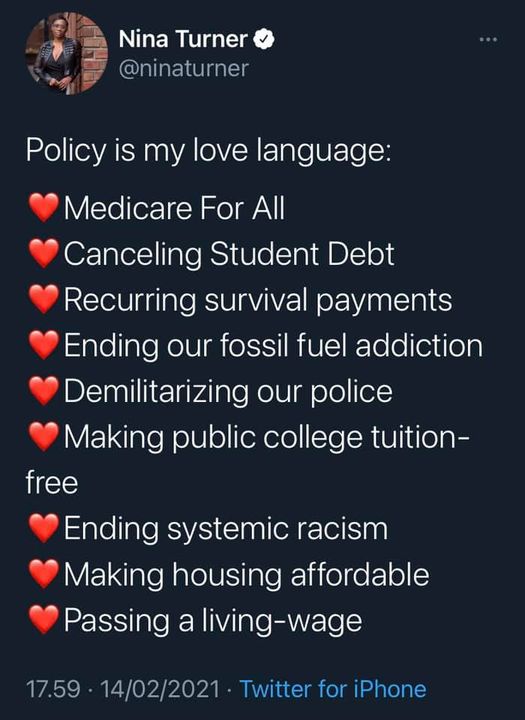I had a conversation on Facebook today that I thought was interesting, so I thought I would share it here on my blog.
I follow a Facebook group called: Tulsi for America 2024 (link: https://www.facebook.com/groups/439978646728664/). As you can probably tell, I am a fan of former Congresswoman (D-HI) and US Army Major Tulsi Gabbard of the Hawaii National Guard. I agree with the good Major on many things, but not all. As you can imagine, Major Gabbard has a wide variety of supporters that have very differing views.
Today, in the Facebook group, someone posted this screenshot:

While I can certainly identify with the sentiment of all of the above, I do not agree all of it should be US policy. I primarily disagree with programs that cost tax payers money when it should be the users of those programs that pay for those programs: such as Medicare, student loans, college education, and housing. But I digress.
The real point of this post is to highlight a sub-conversation in this thread. One of the followers posed the following question:

Here was my response to the comment:
The prices of education and healthcare rise faster than prices in other industries because there is no downward pressure on those prices.
Since there are almost always third parties (insurance companies & governments) involved in paying for healthcare or education, the consumer is therefore insulated from the actual cost of healthcare and education. This insulation is good for major medical emergencies, such as car accidents, or cancer. No one wants to go broke because they get sick or are innocently injured. However, when the consumer is insulated from the cost of a doctor’s appointment for the sniffles, or for instance, a computer programming class or a welding class, then the consumer has no information (in the form of prices) to determine which is the best way to spend their money.
In other industries, prices are used as a signal to consumers to roughly determine the quality of a product, as well as the current supply available, and the rough demand for any good or service. A $1,000 TV usually performs much better than a $100 TV. If the TV industry were the same as healthcare or education, all TVs would cost $500, and it would be less obvious to the uneducated consumer which TVs are good and which are bad.
In order to put downward pressure on the prices of education and healthcare, there must be less third-party intervention (insurance & government) and more direct interaction with the consumer. This would mean the consumer would be more directly responsible for paying for the goods and services they consume in education and healthcare, but it would also mean more downward pressure on prices. The cost of healthcare and education would drop dramatically almost immediately.
So, what are your thoughts? Why do prices rise in some areas of the economy and not in others? Why do some products get cheaper and better over time, and other get more and more expensive?